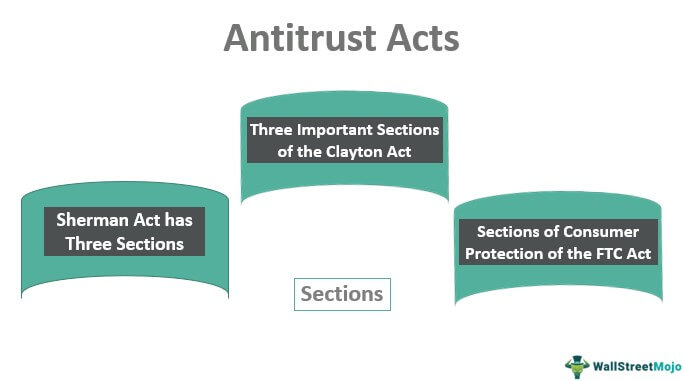Antitrust is an important concept that has been growing in relevance and importance in recent years, as more and more companies face potential antitrust regulations. Antitrust laws are complex and can be difficult to navigate, but it is important to understand the basics of antitrust law and the potential implications for businesses. This article will provide a comprehensive overview of the concept of antitrust and outline the financial definition of antitrust regulations. We will explore the different types of antitrust laws and the potential consequences for businesses that are found to be in violation of antitrust regulations.
An Overview of Antitrust Laws and Regulations

Antitrust laws and regulations have been around for a long time, but it’s only been in the past few decades that they’ve come into their own. Antitrust laws are laws that are designed to keep competition fair in a free market economy. These laws protect consumers from unfair practices, such as price fixing, tying, and the creation of monopolies. It’s important to understand antitrust laws and regulations if you’re a business owner, investor, or consumer, as they help to promote fair competition in the marketplace and protect consumers from potential abuse. Antitrust laws also help to promote innovation, as companies are encouraged to come up with creative new products and services in order to stay competitive. All in all, antitrust laws play a major role in keeping the economy healthy, and it’s important to make sure you understand them and stay up to date with the changing regulations.
The History of Antitrust Legislation

The history of antitrust legislation goes way back, to when the Sherman Antitrust Act of 1890 was passed. This act was the first of its kind and was aimed at preventing large business entities from monopolizing certain markets and driving out competition. Since then, antitrust laws have been amended and strengthened to protect consumers and businesses from the potential harm caused by unfair competition and to ensure fair prices, wages, and access to resources. The Clayton Antitrust Act of 1914 and the Federal Trade Commission Act of 1914 are two of the most significant antitrust laws that were enacted in the United States. In addition, the Robinson-Patman Act of 1936 and the Celler-Kefauver Act of 1950 also introduced new regulations to protect consumers from unfair pricing practices and to ensure fair competition among businesses. These laws have been instrumental in keeping markets competitive and preventing large companies from taking advantage of smaller ones.
Different Types of Antitrust Violations

Antitrust violations come in many different forms, and can have a huge impact on the economy. Price fixing, bid rigging, and market allocation are all violations of antitrust laws, and can lead to companies being fined and even prosecuted. Price fixing is when competitors get together to agree on how much to charge for specific products or services, thus limiting competition and raising prices for consumers. Bid rigging is when two or more competitors agree to take turns winning bids for contracts or products, thus depriving consumers of the benefit of competitive prices. Market allocation is when competitors agree to divide up a certain market or territory, preventing a competitive market from forming in the area. These violations are illegal and can result in huge fines for companies that are found guilty. To ensure that competition is not unfairly restricted, companies must be aware of the antitrust laws and take steps to ensure compliance.
The Impact of Antitrust on Businesses

Antitrust laws have a major impact on businesses, both small and large. These laws protect consumers by preventing companies from taking advantage of their market power and engaging in anti-competitive practices. By regulating the market and preventing companies from forming monopolies, antitrust laws ensure that businesses compete fairly and that consumers have access to a wide variety of products and services at reasonable prices. Furthermore, antitrust laws protect businesses from their competitors engaging in unfair practices, such as price fixing and predatory pricing. This allows businesses to operate more efficiently and helps them to remain competitive in the market. Without antitrust laws, businesses would be at a disadvantage and the market would be less competitive, ultimately leading to higher prices for consumers.
How to Avoid Antitrust Violations and Plagiarism

Are you worried about accidentally infringing on antitrust laws? Don’t worry, there are ways to ensure that you don’t violate the law without sacrificing creativity and originality. When it comes to avoiding antitrust violations, the most important thing is to make sure that you’re not engaging in anticompetitive activities. This includes things like price-fixing, bid-rigging, and market allocation. Additionally, you should always make sure to do your own research and never copy someone else’s work. Plagiarism is a huge no-no, and there are a variety of tools available to help you make sure you’re not accidentally copying someone else’s work. Don’t be afraid to be creative, but make sure you’re always giving credit where it’s due.




